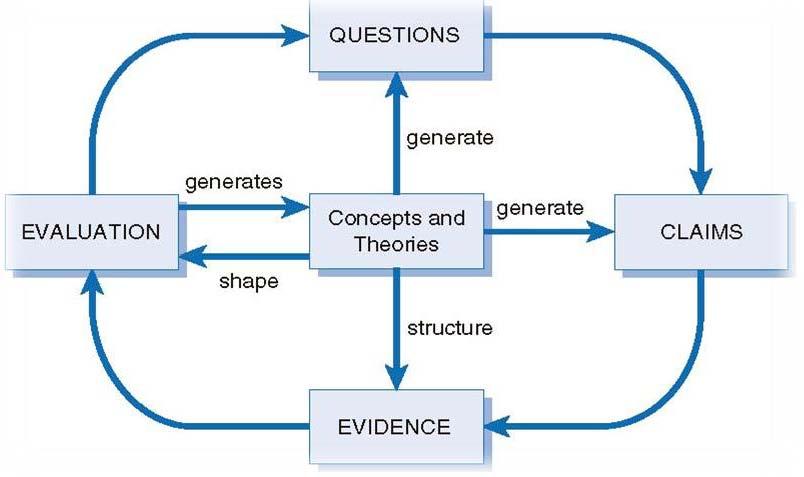Good Essay Writing: A Social Sciences Guide
Formulating an Argument
Formulating an argument for an essay is quite a complex activity, but it is not dissimilar to some of the discussions that you might have with your friends or family. Below are a series of statements. Try to identify those that might follow the ‘circuit of knowledge’ and help to build a concise, logical argument. Try to figure out the line of the argument. It might help you to order the statements into a discussion between two people:
- We haven’t seen a movie in ages.
- It’s going to rain all weekend.
- But, just because Tom and Sunita enjoy crazy golf, it doesn’t mean that everyone does.
- It’s too expensive.
- What should we do this weekend?
- I have a two-for-one card.
- We should do something interesting.
- Last weekend, we played crazy golf.
- We could go to a movie.
Here is a reasonably logical order for these statements, organised as a discussion between Theresa and Shakil:
Theresa: What should we do this weekend?
Shakil: We should do something interesting.
Theresa: Last weekend we played crazy golf. But, just because Tom and Sunita enjoy crazy golf, it doesn’t mean that everyone does.
Shakil: It’s going to rain all weekend. We could go to a movie. We haven’t seen a movie in ages.
Theresa: It’s too expensive.
Shakil: I have a two-for-one card.
What is the core argument here? Can you identify the question(s), claims, evidence, evaluation(s) and key concepts?

The circuit of knowledge, theories and concepts
Source: Adapted from Sherratt et al. (2000, p. 18).
Fomulating an Argument – download for a comparison of the ‘weekend’ discussion with the development of an argument about a much more likely social science question
